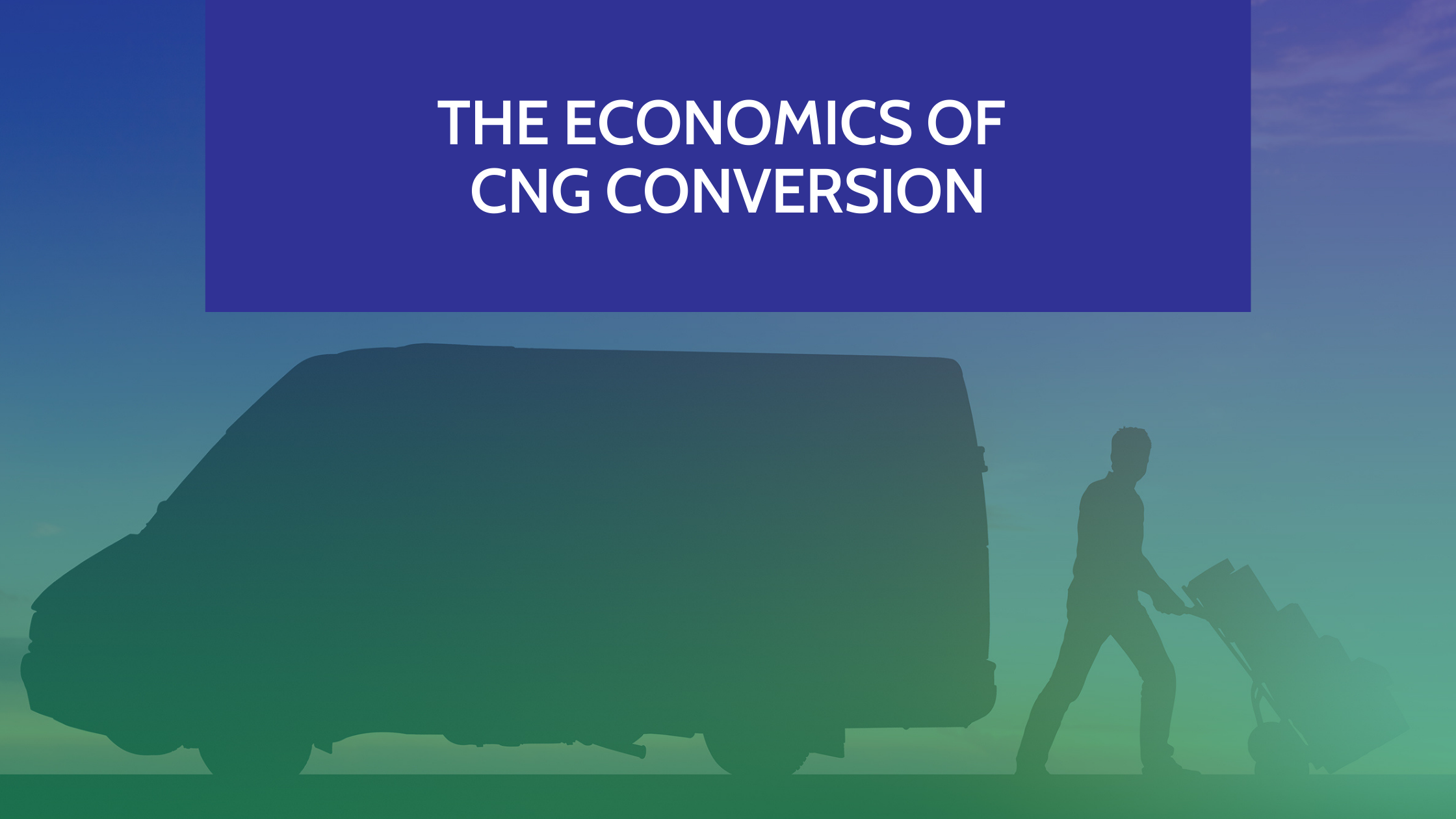Compressed Natural Gas (CNG) is a clean-burning alternative fuel that offers both environmental and economic benefits compared to gasoline.
However, CNG conversion, which creates a bi-fuel engine that can run on either CNG or gasoline, isn’t exactly cheap. Purchasing and installing the CNG tank and conversion kit can cost over $5,000. So, does this investment make financial sense?
Even if you attribute no value to the environmental benefits, the answer is generally yes, provided:
- You drive at least 15,000 miles per year
- You plan to operate your vehicle for at least 3 more years while paying back the investment through fuel cost savings
- There is a CNG filling station nearby
- You are OK giving up trunk or truck bed space for the CNG tank
FUEL COST SAVINGS
Prior to the 2014 oil price crash (which has persisted into 2020 because of a price way between oil producers and the demand reduction caused by the COVID-19 pandemic), the price of CNG was about one quarter of the price of gasoline. This meant that anyone converting their vehicle from gasoline to CNG fuel would pay back their investment within a few thousand miles.
Today, CNG can be produced for about $0.80 per gallon of gasoline equivalent (GGE). At the pump, you will typically pay about $2.00 per GGE because suppliers are still recovering their investments in distribution infrastructure and filling stations.
This means that fuel cost savings are much lower and will remain that way until oil prices rise again and CNG distributors recover their investments and lower the pump price of CNG.
However, it does not mean that a CNG conversion will never pay back. It will take longer than before but still makes sense for high-mileage vehicles, as described above.
TRANSFERRABLE CONVERSION KITS
A major limitation of some CNG conversion kits – including all EPA-certified kits – is that they are designed for a specific vehicle model and year. This means that you must recover your entire investment while operating that individual vehicle. If you decide to replace the vehicle, you must replace the CNG conversion kit.
SkyCNG’s conversion kits, by contrast, can be tuned to a wide range of gasoline engines. This means that a kit can be transferred between vehicles for the cost of a few consumable parts. Your investment in a SkyCNG kit can still be recovered if you decide to switch vehicles before the kit has paid for itself in fuel savings.
WHAT ABOUT INCENTIVES AND REBATES?
What happened to the $10,000 CNG conversion incentive you heard about on the radio?
Sadly, although many State and Federal programs were created to promote CNG conversion, they have almost all expired or been used up. We’re hopeful that new programs will be introduced by the incoming administration.
The Environmental Protection Agency (EPA) also regulates qualification for most of these programs. Unfortunately, the EPA has only certified a limited range of CNG conversion kits, covering a relatively short list of late-model vehicles and engines, and those kits cost over $12,000.
We recommend using an EPA-certified kit for any government related work or whenever you’re converting a brand-new vehicle.
DISPELLING MYTHS
The number of CNG conversion is still relatively low, primarily because most people don’t know the facts or have been misled.
There’s No CNG Near Me
CNG refueling infrastructure continues to expand. Click here to find a CNG filling station in your area. You may not live right next to a CNG station, but you probably won’t have to drive far out of your way to find one.
I Risk Running Out of Fuel
Although your engine will deliver the same number of miles per gallon when running on CNG, the CNG cylinder will only have enough capacity for 6-10 GGE. The good news, however, is that conversion doesn’t disable your vehicle’s ability to run on gasoline.
SkyCNG conversion kits create a bi-fuel system that can be switched between CNG and gasoline at will. So, provided you keep a few gallons of gasoline in the original tank you should never run out of fuel, even if you’re traveling through an area with limited CNG fueling options.
Converting to CNG Will Damage my Engine and/or Void my Warranty
As we discussed in an earlier post, neither of these statements is true, provided you purchase your kit from a reputable supplier and have it installed by a qualified and certified technician.
Converting to CNG can actually extend the life of your engine, will not harm any of the factory-installed components, and will not affect your warranty rights.
IN CONCLUSION
Converting your engine to CNG – especially in a bi-fuel configuration where you can switch between gasoline and CNG at will – is an economically and environmentally sound decision.
How long it will take to recover your investment - assuming you only count fuel savings and don’t factor in any value for emissions reduction - will depend on the price of crude oil and how it impacts diesel and gasoline prices at the pump.
With high-quality, durable kits, you will definitely see a positive return on investment provided you drive enough miles.
This remains true even if you replace your vehicle, since kits can be transferred to the new engine for the cost of a few consumables.


